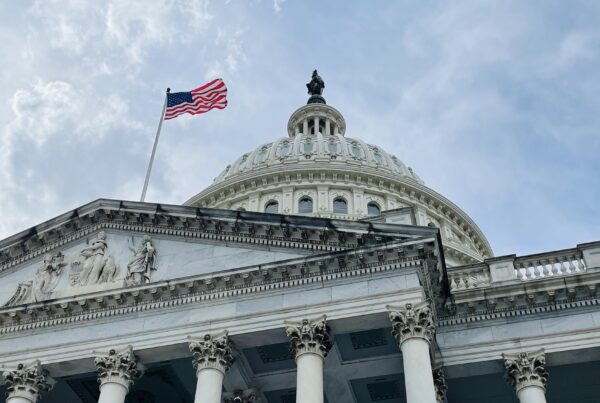New York Governor Kathy Hochul recently passed several pieces of legislation in connection with the New York 2023 fiscal year budget. This legislation contains numerous changes to the New York Pass-Through Entity Tax (PTET) program and other tax incentives.
New York PTET Changes
New York, like many other states, created an optional pass-through entity tax program. Partnerships and S-corporations could elect to participate in the program and pay tax to New York State at the entity level. The entity would then receive a Federal tax deduction for the state tax, thereby avoiding the $10,000 cap on deducting state taxes on a Federal individual tax return. New York’s program was first available for the 2021 tax year.
Under the existing program, S corporations with New York activity could elect to pay tax under the PTET program, but only to the extent of their New York sourced activity. This put New York resident shareholders at somewhat of a disadvantage since they would pay New York taxes individually on all of the income of the S corporation but would only receive a PTET credit for taxes related to the New York sourced income. This treatment under the New York law was necessary, however, treating resident and nonresident shareholders differently could be deemed to create a second class of stock and jeopardize the corporation’s S election status.
Under the new law, beginning with the tax year 2022, S corporations that have only New York resident shareholders may make a separate election as an “electing resident S corporation” and pay tax on all income, no matter where it is sourced. Since all shareholders would-be residents, in this case, this puts all S corporation shareholders on equal footing and does not jeopardize the S corporation status. The shareholders would benefit from a larger Federal tax deduction based on the entire net income of the S corporation. An S corporation must certify that they have only New York resident shareholders by March 15, 2023. It is expected that New York will issue further guidance on the mechanics to make this election in the coming months.
Extension of PTET Election Due Date
Due to the changes in the PTET program effective for the 2022 tax year, New York has extended the due date for making the 2022 PTET election. Previously, the election would have been due on March 15, 2022, but this has been extended to September 15, 2022 in order to give extra time to taxpayers that may want to elect based on the new law changes.
In order to be effective, an election made between March 15, 2022 and June 15, 2022 must include a payment for 25% of the estimated tax for the year. An election made between June 15 and September 15, 2022 must include a payment of 50% of the estimated tax for the year.
New York City PTET Creation
A new PTET program has been created for New York City that is set to be effective for tax years beginning on or after January 1, 2023. To be eligible, a partnership must have at least one New York City resident partner. An S corporation must have only New York City resident shareholders to be eligible. The due date for making the election will be March 15 of the tax year the election is to be effective. For a 2023 calendar year, the election would be due on March 15, 2023. The tax rate for the NYC PTET is 3.876%.
Small Business Owner Tax Relief
The New York budget also made modifications to the New York state subtraction for small businesses. Under previous law, a sole proprietor with at least one employee was entitled to a subtraction from New York income of 5% of the income from their sole proprietorship if that income was less than $250,000.
The newly passed budget makes several major changes for tax years beginning in 2022:
- Increases the deduction from 5% to 15%
- Expands the eligibility to include owners of New York S corporations and partnerships with at least one employee, and
- Net income of less than $250,000, or
- Gross New York income of less than $1.5 million.
In the case of an individual who owns several pass-through entities, the combined income from pass-through entities must be less than $250,000 to qualify for the deduction.
Small Business Tax Relief Credit for Covid-19 Expenses
New York’s new budget legislation also created a new credit program for Covid-19 capital costs. Businesses with more than $2,000 of Covid-19 capital costs and less than $2.5 million in gross receipts in 2021 may qualify for the credit, which is equal to 50% of the costs incurred, not to exceed a $25,000 maximum credit. Qualified Covid-19 capital costs must be incurred between January 1, 2021, and December 31, 2022, at a business location located in New York and include, among other items:
- Supplies to disinfect and/or protect against Covid-19 transmission
- Physical barriers and sneeze guards
- Hand sanitizer stations
- Signage related to vaccination requirements, physical distancing, etc.
- Materials needed to block off areas for social distancing
- Various equipment to allow for contactless payment
- Building retrofits to accommodate social distancing
- Installation of air purifying equipment
The deadline for submitting credit applications is March 31, 2023. After successful approval of the application, a taxpayer will receive a certificate from New York State with the approved amount of the credit. The credit is claimed on the tax return in the year the certificate is issued.
Miscellaneous Credits
The budget extended or modified several New York credits, including the Low-Income Housing Credit, Clean Heating Fuel Credit, Alternative Fuel and Electric Vehicle Recharging Property Credit, and the Restaurant Return to Work Credit.




